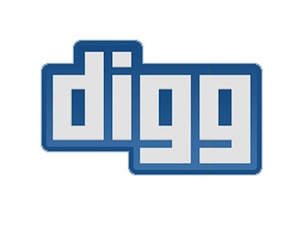How I Would Fix The New Digg

Kevin Rose is in a tough position right now. Digg version 4 has been officially released to everyone. One might say that the problem is many people are upset with the changes and while that is true, I think the problem really stems at the fact the Digg’s core user base is comprised of geeks (always has been and probably always will be). And geeks are probably the hardest group of people to please when it comes to anything technology related. Why is this? Personally, I think it has to do with a couple of things.
One being that a lot of geeks actually understand or at the very least are interested in the inner-workings of anything tech and because of that they like to form opinions which they aren’t afraid to voice throughout various means on the web. Another thing about geeks and technology is we are not as afraid to jump ship and move to another product/service if we feel it’s better. In other words, we’ll try things before most other people will and report back if it’s good or not. So when you deal almost exclusively with these types of people, it can be very difficult.
The Digg community has always been very techie-oriented and it seems with Digg v.4 they were (are) trying to attract a new crowd of users to the site. I’m not going to get into whether or not that is a smart move or not in the post (may be a good topic for a later article), but I will say that I don’t think it’s in Digg’s best interest to lose the community they have built from the start in favor of a lesser-techie crowd.
Now, if I were Kevin Rose, aside from all the various bug fixes that need to be done here is how I (as a geek) would fix the new Digg without completely reverting it.
More personalization. Hear me out. Any story imported via RSS that hits the front page of “Top News” I don’t want to see unless I follow that sites profile. Let me explain further. For example, I don’t read Mashable, but lately their stories have been bombarding the front page of Digg – I’m not interested in these stories. I don’t follow them on Digg either, the same way I don’t follow them on Twitter. The only difference here is that even though I don’t follow them on Digg, I’m still seeing their content. So with my proposal, you can keep the RSS feeds, following, and all that jazz, but as long as I’m not following that publisher on Digg I never have to see their stories hit the front page, provided it wasn’t user submitted. This would allow user submitted stories to hit the front page without having to compete with these massive publishers such as Mashable, TechCrunch, etc.
Or you could just drop the RSS feed import. I thought it sounded like a good idea when I first heard about it, but in reality it doesn’t work. It’s one of those good on paper type of things.
The 24-hour time frame “requirement” has been removed. This makes it possible for items to hit Digg’s front page that were submitted at any time. Again, it sounds nice on paper, but in reality, Digg is a news site at its core. The only people who still report news close to 24 hours after it occurred are newspapers. The 24-hour time frame should be reimplemented for the sake of real-time and relevancy.
Bring back the dedicated image and video sections. It separates the various types of content better and makes it easier to focus on one content type such as only text, only images, or only videos. Along with content organization, I would like to see pagination brought back. I hate that Twitter-style “Load more” button, I hate it on Twitter too. If you refresh, you lose your spot and it’s impossible to quickly run through pages of stories.
Those things are my main gripes that I haven’t seen Digg address anywhere. The other stuff such as the bug fixes and the default page (e.g. My News or Top News) will be fixed according to what I’ve read. What do you think? If these changes were to occur would that be acceptable to you? Have any others you would like to add? Leave a comment!